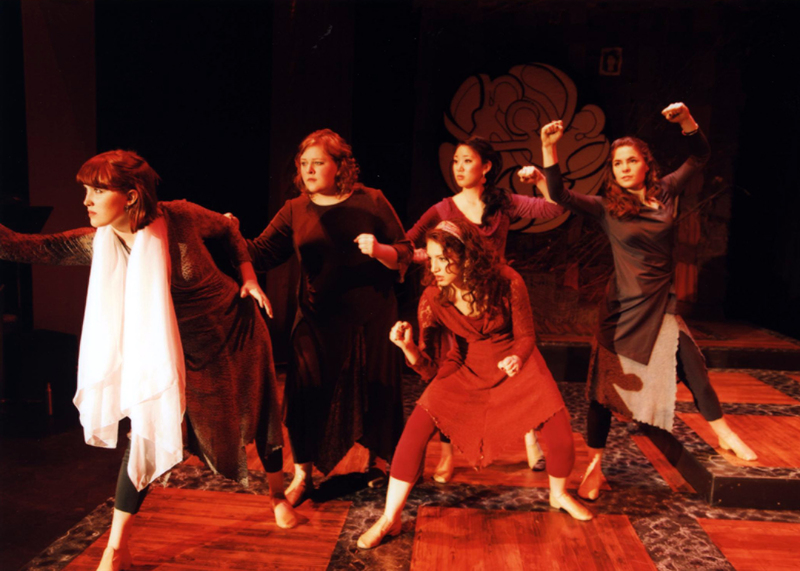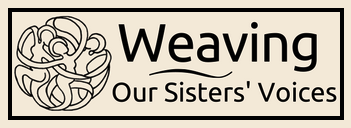The Impact of Theatre Arts

The actors experience the stories of the script in acting them out. Photo courtesy of Gonzaga University Archives.
Lines aren’t something you just say and move on from, they become a part of you. And part of you becomes the performance. My original stage manager from the 2006 tour articulated that,
"It's fun to read through the old script. The most profound thing for me, though, was how the voices of the women who first performed it echoed so clearly in my mind as I revisited it ten years later. I could hear, so clearly, the tenor and inflection of Sara, Christi Anne, and Mary Catherine as they told the stories. I don't remember a lot of the movement - even with the notes in my script, I couldn't begin to recreate the choreography. But the words and the women speaking them still resonate so clearly. I feel like that alone perfectly encapsulates what we were trying to do when we first created this show -- there's a power in women's voices, when we're given the chance to speak, and that power echoes and sustains, even with time and distance and life changes."
– Kathryn Witherington (Bassier), stage manager 2006
Weaving Our Sisters’ Voices is full of powerful and empowering language impacting not only the audience, but also for the performers who ‘live’ with it.
Yes, we were putting on a production, but it was so much more. Can rehearsal and performance be considered like a meditation? Like one long prayer? We were telling many narratives that became a single story - our story - and you could feel that through the development of the work.
Suzanne Ostersmith
